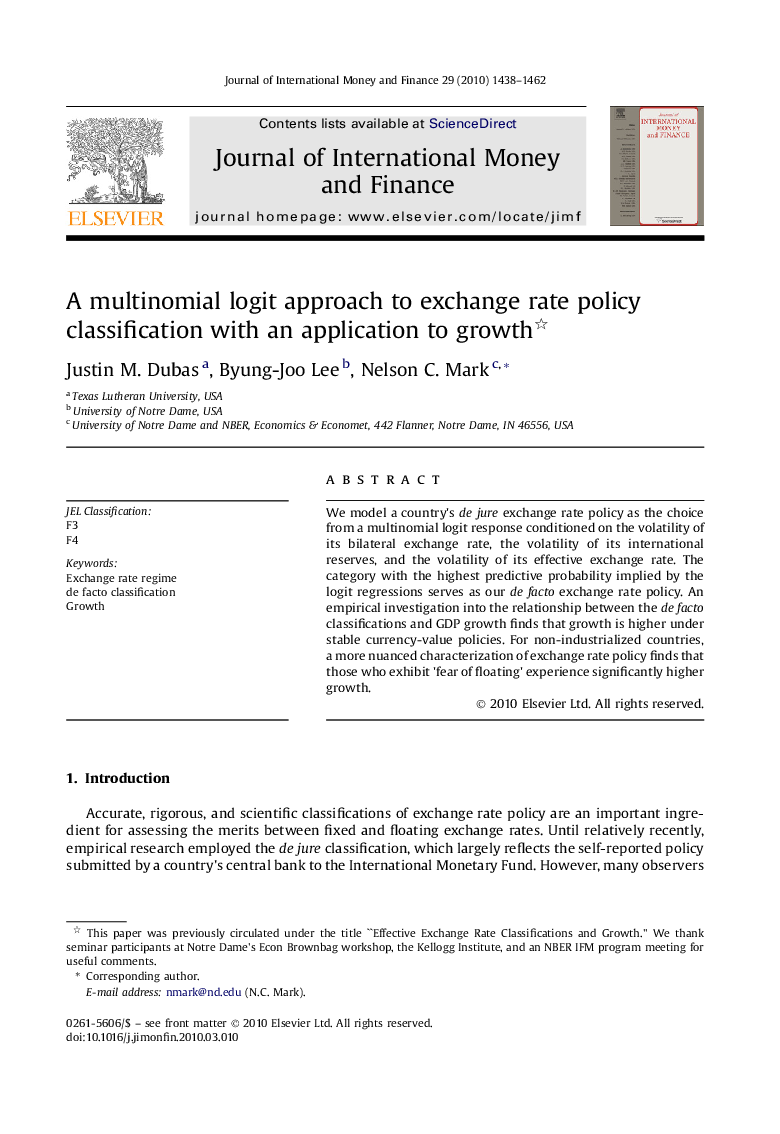| Article ID | Journal | Published Year | Pages | File Type |
|---|---|---|---|---|
| 963693 | Journal of International Money and Finance | 2010 | 25 Pages |
Abstract
We model a country's de jure exchange rate policy as the choice from a multinomial logit response conditioned on the volatility of its bilateral exchange rate, the volatility of its international reserves, and the volatility of its effective exchange rate. The category with the highest predictive probability implied by the logit regressions serves as our de facto exchange rate policy. An empirical investigation into the relationship between the de facto classifications and GDP growth finds that growth is higher under stable currency-value policies. For non-industrialized countries, a more nuanced characterization of exchange rate policy finds that those who exhibit 'fear of floating' experience significantly higher growth.
Keywords
Related Topics
Social Sciences and Humanities
Economics, Econometrics and Finance
Economics and Econometrics
Authors
Justin M. Dubas, Byung-Joo Lee, Nelson C. Mark,
